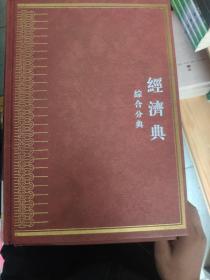
可压缩流的大涡模拟方法
正版库存图书,没有笔记划线,不缺货的情况下,工作17点以前下单,当天发货
¥ 120 九五品
仅1件
四川成都
认证卖家担保交易快速发货售后保障
作者E.加尼尔(E.Garnier) 著
出版社世界图书出版公司
出版时间2013-05
版次1
装帧平装
货号B012
上书时间2024-10-07
- 在售商品 暂无
- 平均发货时间 9小时
- 好评率 暂无
- 店主推荐
- 最新上架
商品详情
- 品相描述:九五品
图书标准信息
- 作者 E.加尼尔(E.Garnier) 著
- 出版社 世界图书出版公司
- 出版时间 2013-05
- 版次 1
- ISBN 9787510058202
- 定价 49.00元
- 装帧 平装
- 开本 16开
- 纸张 胶版纸
- 页数 276页
- 正文语种 英语
- 【内容简介】
- 可压缩流的les是一个函待开发的领域,《可压缩流的大涡模拟方法》旨在讲述les基础及其在实践中的应用。为了最大程度地缩小理论框架之间的衔接,缓解les研究和日益增长的工程模型应用中的需求之间的矛盾,《可压缩流的大涡模拟方法》最大程度地将和该领域有关论题囊括其中,用全新的方式全面讲述了les理论及其应用。
- 【目录】
-
1introduction
2lesgoverningequations
2.1preliminarydiscussion
2.2governingequations
2.2.1fundamentalassumptions
2.2.2conservativeformulation
2.2.3alternativeformulations
2.3filteringoperator
2.3.1definition
2.3.2discreterepresentationoffilters
2.3.3filteringofdiscontinuities
2.3.4filterassociatedtothenumericalmethod
2.3.5commutationerror
2.3.6favrefiltering
2.3.7summaryofthedifferenttypeoffilters
2.4formulationofthefilteredgoverningequations.
2.4.1enthalpyformulation
2.4.2temperatureformulation
2.4.3pressureformulation
2.4.4entropyformulation
2.4.5filteredtotalenergyequations
2.4.6momentumequations
2.4.7simplifyingassumptions
2.5additionalrelationsforlesofcompressibleflows
2.5.1preservationoforiginalsymmetries
2.5.2discontinuityjumprelationsforles
2.5.3secondlawofthermodynamics
2.6modelconstruction
2.6.1basichypothesis
2.6.2modelingstrategies
3compressibleturbulencedynamics
3.1scopeandcontentofthischapter
3.2kovasznaydecompositionofturbulentfluctuations
3.2.1kovasznay'slineardecomposition
3.2.2weaklynonlinearkovasznaydecomposition
3.3statisticaldescriptionofcompressibleturbulence
3.4shock-turbulenceinteraction
3.4.1introductiontothelinearinteractionapproximationtheory
3.4.2vorticalturbulence-shockinteraction
3.4.3mixed-modeturbulence-shockinteraction
3.4.4consequencesforsubgridmodeling
3.5differentregimesofisotropiccompressibleturbulence
3.5.1quasi-isentropic-turbulenceregime
3.5.2nonlinearsubsonicregime
3.5.3supersonicregime
3.5.4consequencesforsubgridmodeling
4functionalmodeling
4.1basisoffunctionalmodeling
4.1.1phenomenologyofscaleinteractions
4.1.2basicfunctionalmodelinghypothesis
4.2sgsviscosity
4.2.1theboussinesqhypothesis
4.2.2smagorinskymodel
4.2.3structurefunctionmodel
4.2.4mixedscalemodel
4.3isotropictensormodeling
4.4sgsheatflux
4.5modelingofthesubgridturbulentdissipationrate
4.6improvementofsgsmodels
4.6.1structuralsensorsandselectivemodels
4.6.2accentuationtechniqueandfilteredmodels
4.6.3high-passfilterededdyviscosity
4.6.4wall-adaptinglocaleddy-viscositymodel
4.6.5dynamicprocedure
4.6.6implicitdiffusionandtheimplicitlesconcept
5explicitstructuralmodeling
5.1motivationofstructuralmodeling
5.2modelsbasedondeconvolution
5.2.1scale-similaritymodel
5.2.2approximatedeconvolutionmodel
5.2.3tensor-diffusivitymodel
5.3regularizationtechniques;.
5.3.1eddy-viscosityregularization
5.3.2relaxationregularization
5.3.3regularizationbyexplicitfiltering
5.4multi-scalemodelingofsubgrid-scales
5.4.1multi-levelapproaches
5.4.2stretched-vortexmodel
5.4.3variationalmulti-scalemodel
6relationbetweensgsmodelandnumericaldiscretization
6.1systematicproceduresfornonlinearerroranalysis
6.1.1errorsources
6.1.2modifieddifferentialequationanalysis
6.1.3modifieddifferentialequationanalysisinspectralspace
6.2implicitlesapproachesbasedonlinearandnonlineardiscretizationschemes
6.2.1thevolumebalanceprocedureofschumamm
6.2.2thekawamura-kuwaharascheme
6.2.3thepiecewise-parabolicmethod
6.2.4theflux-corrected-transportmethod
6.2.5thempdatamethod
6.2.6theoptimumfinite-volumescheme
6.3implicitlesbyadaptivelocaldeconvolution
6.3.1fundamentalconceptofaldm
6.3.2aldmfortheincompressiblenavier-stokesequations.
6.3.3aldmforthecompressiblenavier-stokesequations
7boundaryconditionsforlarge-eddysimulationofcompressibleflows
7.1introduction
7.2wallmodelingforcompressibleles
7.2.1statementoftheproblem
7.2.2wallboundaryconditionsinthekovasznaydecompositionframework:aninsight
7.2.3turbulentboundarylayer:vorticityandtemperaturefields
7.2.4turbulentboundarylayer:acousticfield
7.2.5consequencesforthedevelopmentofcompressiblewallmodels
7.2.6extensionofexistingwallmodelsforincompressibleflows
7.3unsteadyturbulentinflowconditionsforcompressibleles
7.3.1fundamentals
7.3.2precursorsimulation:advantagesanddrawbacks
7.3.3extraction-rescalingtechniques
7.3.4synthetic-turbulence-basedmodels
8subsonicapplicationswithcompressibilityeffects
8.1homogeneousturbulence
8.1.1context
8.1.2afewrealizations
8.1.3influenceofthenumericalmethod
8.1.4sgsmodeling
8.2channelflow
8.2.1context
8.2.2afewrealizations
8.2.3influenceofthenumericalmethod
8.2.4influenceofthesgsmodel
8.3mixinglayer
8.3.1context
8.3.2afewrealizations
8.3.3influenceofthenumericalmethod
8.3.4influenceofthesgsmodel
8.4boundary-layerflow
8.4.1context
8.4.2afewrealizations
8.5jets
8.5.1context
8.5.2afewrealizations
8.5.3influenceofthenumericalmethod
8.5.4influenceofthesgsmodel
8.5.5physicalanalysis
8.6flowsovercavities
8.6:1context
8.6.2afewrealizations
8.6.3influenceofthenumericalmethod
8.6.4influenceofthesgsmodel
8.6.5physicalanalysis
9supersonicapplications
9.1homogeneousturbulence
9.2channelflow
9.2.1context
9.2.2afewrealizations
9.2.3influenceofthenumericalmethod
9.2.4influenceofthegridresolution
9.2.5influenceofthesgsmodel
9.3boundarylayers
9.3.1context
9.3.2afewrealizations
9.3.3influenceofthenumericalmethod
9.3.4influenceofthegridresolution
9.3.5sgsmodeling
9.4jets
9.4.1context
9.4.2afewrealizations
9.4.3influenceofthenumericalmethod
9.4.4influenceofthesgsmodel
9.4.5physicalanalysis
10supersonicapplicationswithshock-turbulenceinteraction
10.1shock-interactionwithhomogeneousturbulence
10.1.1phenomenologyofshock-interactionwithhomogeneousturbulence
10.1.2lesofshock-interactionwithhomogeneousturbulence
10.2shock-turbulenceinteractioninjets
10.2.1phenomenologyofshock-turbulenceinteractioninjets
10.2.2lesofshock-turbulenceinteractioninjets
10.3shock-turbulent-boundary-layerinteraction
10.3.1phenomenologyofshock-turbulent-boundary-layerinteraction
10.3.2lesofcompression-rampconfigurations
references
index
点击展开
点击收起
— 没有更多了 —















以下为对购买帮助不大的评价